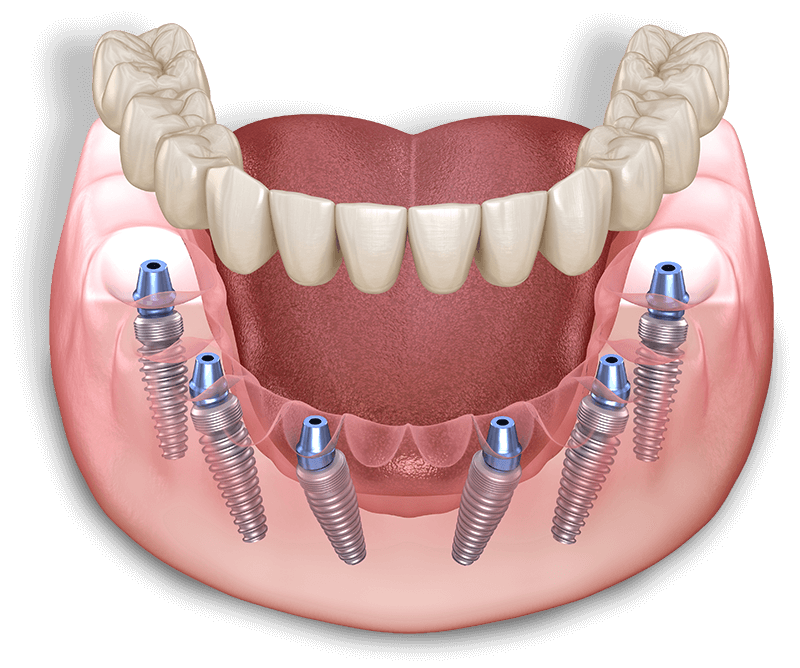If you have a loose crown, pain around an implant, or worry about a change in your bite, this guide explains what dental implant repair in Fort Lauderdale, FL is, common warning signs, likely causes, and what to expect during an evaluation. Quick diagnosis matters: catching problems early often means simpler fixes and better long-term results. If you notice severe pain, spreading infection, or an implant that feels loose, see a specialist promptly for dental implant repair in Fort Lauderdale, FL.
Signs Your Dental Implant Needs Repair
Pain or persistent discomfort
New or worsening pain around an implant that doesn’t fade after a few days can signal infection, inflammation, or mechanical issues. Don’t ignore persistent soreness.
Mobility or loose parts
If the crown, abutment, or screw moves when you bite or touch it, that mobility is a clear sign the loose implant needs attention. A loose implant risks further damage.
Swelling, redness, or pus (infection)
Swollen gums, redness, bleeding, a bad taste, or pus suggest peri-implant infection. Infections can erode bone and threaten implant stability.
Visible damage to the prosthetic
Cracked crowns, broken screws, or damaged full-arch prosthetics affect function and hygiene and should be repaired quickly to avoid more complex work.
Changes in bite or chewing function
New difficulty chewing, a shifting bite, or uneven wear may mean the prosthetic is misaligned or components have failed.
Common Causes of Dental Implant Problems
Peri-implantitis and infection
Bacterial buildup and gum disease can inflame tissues and eat away bone around an implant, leading to failure if untreated.
Mechanical failures
Loose screws, fractured abutments, and worn prosthetic materials can occur over time or from excessive force.
Poor initial conditions or bone loss
Insufficient bone, poor placement, or untreated bone loss can compromise implant support years after placement.
Trauma and bruxism
Accidents, teeth grinding, or clenching can overload implants and cause fractures or loosening.
What Happens During a Dental Implant Repair Evaluation
Clinical exam and patient history
The clinician asks about symptoms, timing, prior repairs, and any trauma or clenching habits to guide diagnosis.
Imaging and diagnostics
CBCT scans, intraoral photos, and bite records help pinpoint bone level, implant position, and hidden fractures — essential for accurate dental implant repair in Fort Lauderdale, FL.
Assessing the prosthetic and implant hardware
The team will test crown fit, check screws and abutments, and evaluate surrounding gums and bone to form a treatment plan.
Treatment Options for Dental Implant Repair
Conservative fixes
Many issues are resolved by tightening screws, re-cementing or replacing crowns, and adjusting the bite.
Non-surgical therapies
Professional deep cleanings, targeted antibiotics, laser therapy, and peri-implant maintenance can control infection and inflammation.
Surgical interventions
When bone is lost or hardware has failed, options include bone grafting, guided repositioning, or implant removal and replacement.
When full-arch prosthetics need repair
For All-on-6 or full-arch restorations, teams decide between repair and remake based on structural damage and fit.
How to Prevent Future Implant Problems
Daily oral hygiene and professional care
Brush carefully, floss or use interdental cleaners, and keep routine implant check-ups to catch early signs.
Protective measures
Night guards for bruxism, avoiding very hard foods, and quitting smoking reduce risk of failure.
Regular monitoring
Periodic imaging and bite checks help spot changes early so repairs are simpler and less costly.
How a Specialized Implant Center Helps with Repair
A specialized center like In A Day Smile Dental Implant Centers offers focused expertise for dental implant repair in Fort Lauderdale, FL. Led by prosthodontist Dr. Burak Taskonak, the team uses CBCT, guided planning, intraoral imaging, and an in-house lab to diagnose and repair implants precisely and quickly.
When to Seek Urgent Care and Next Steps
Seek prompt attention for severe pain, spreading swelling, fever, visible pus, or any implant that feels loose. These are red flags that need urgent care. If you notice these symptoms, call to schedule an evaluation for dental implant repair with a qualified implant team right away.


